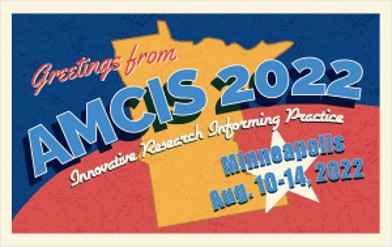SIG LEAD - IS Leadership and the IT Profession
Loading...
Paper Type
Complete
Paper Number
1374
Description
IT professionals represent a growing group of highly educated migrants in different countries, yet research on their workplace integration is scarce. Applying a combined theoretical framework of Hofstede's culture dimensions and functional theory of language approach, this paper addresses the research need in investigating how migrant IT professionals to Sweden integrate into the workplace and the role of ICTs in mitigating integration challenges. Fifteen (15) interviews with IT professionals from India and Pakistan were analyzed using Thematic Content Analysis. Results uncover migrants experiencing language barriers and cultural differences, which impede developing relationships with colleagues and career opportunities. Our findings indicate that although ICTs, primarily machine translation applications, are indispensable for supporting communication between migrants and locals, collegial support is still essential for managing intercultural interactions, contributing to migrants’ feelings of connectedness at work and a sense of belonging. Workplace inclusion and suggestions for practitioners are discussed.
Recommended Citation
Berbyuk Lindström, Nataliya and Cordeiro, Cheryl, "“Just Google Translate It!” ICT Use of Migrant IT professionals for Mitigating Workplace Integration Challenges" (2022). AMCIS 2022 Proceedings. 1.
https://aisel.aisnet.org/amcis2022/sig_lead/sig_lead/1
“Just Google Translate It!” ICT Use of Migrant IT professionals for Mitigating Workplace Integration Challenges
IT professionals represent a growing group of highly educated migrants in different countries, yet research on their workplace integration is scarce. Applying a combined theoretical framework of Hofstede's culture dimensions and functional theory of language approach, this paper addresses the research need in investigating how migrant IT professionals to Sweden integrate into the workplace and the role of ICTs in mitigating integration challenges. Fifteen (15) interviews with IT professionals from India and Pakistan were analyzed using Thematic Content Analysis. Results uncover migrants experiencing language barriers and cultural differences, which impede developing relationships with colleagues and career opportunities. Our findings indicate that although ICTs, primarily machine translation applications, are indispensable for supporting communication between migrants and locals, collegial support is still essential for managing intercultural interactions, contributing to migrants’ feelings of connectedness at work and a sense of belonging. Workplace inclusion and suggestions for practitioners are discussed.
When commenting on articles, please be friendly, welcoming, respectful and abide by the AIS eLibrary Discussion Thread Code of Conduct posted here.



Comments
SIG LEAD